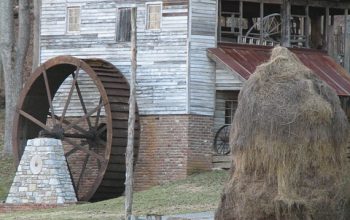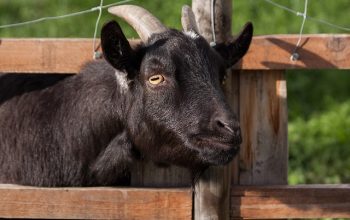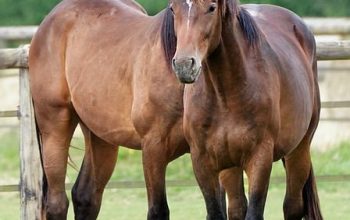Farm fence panels are vital for Ontario farmers, offering security, efficiency, and compliance with provincial regulations. Durable materials like wood, steel, or vinyl ensure longevity against harsh weather and frequent use. Proper installation, regular maintenance, and adherence to MAFRA guidelines create secure livestock enclosures that protect crops, animals, and nearby communities. Ontario farmers can choose from various horse fence panel options to meet specific farming needs while enhancing property value and mitigating disputes.
“Secure your horse enclosures with durable horse fence panels, a must-have for any Ontario farmer. This comprehensive guide explores the benefits of investing in high-quality fencing, covering everything from understanding basic panel types and their advantages to installation and maintenance tips for maximum security.
Delve into different styles, explore regulatory requirements, and discover how to choose the right farm fence for your needs, ensuring a safe and efficient environment for your horses.”
- Understanding Farm Fence Panels: The Basics and Benefits in Ontario
- Types of Horse Fence Panels: A Comprehensive Overview for Ontario Farmers
- Installation and Maintenance Tips for Optimal Security in Ontario
- Regulatory Considerations and Safety Standards for Farm Fences in Ontario
Understanding Farm Fence Panels: The Basics and Benefits in Ontario
In Ontario, farm fence panels are an essential component for creating safe and secure enclosures on agricultural properties. These panels serve as a physical barrier, protecting livestock from potential hazards like stray animals or predators while also containing crops and preventing unauthorized access. The basics of farm fence panels involve selecting materials that are durable enough to withstand harsh weather conditions and high-traffic areas. Common options include wood, steel, and vinyl, each with its own advantages and maintenance requirements.
The benefits of well-installed farm fence panels extend beyond security. They contribute to the overall efficiency and productivity of a farm by defining property boundaries, organizing livestock for easier management, and enhancing overall safety for both animals and farmers. Additionally, an adequate fence system can increase property value and reduce conflicts with neighbors, making it a strategic investment for any Ontario farmer looking to protect their assets and ensure a harmonious working environment.
Types of Horse Fence Panels: A Comprehensive Overview for Ontario Farmers
Horse fence panels are an essential consideration for Ontario farmers seeking secure and safe enclosures for their livestock. These panels come in various types, each offering unique advantages tailored to different farming needs and preferences. One popular choice is the traditional wooden rail fence, known for its durability and aesthetic appeal. This classic option provides a robust barrier while allowing for adequate visibility, which can be crucial for monitoring horse behavior.
Another prevalent type is the metal mesh fence, highly effective in keeping horses contained while ensuring proper air circulation. These panels are often galvanized or treated to resist corrosion, making them suitable for outdoor use and ideal for farms with larger open spaces. Additionally, modern farm fence designs incorporate vinyl coating, offering both strength and low maintenance, which appeals to farmers seeking long-lasting solutions without intensive upkeep.
Installation and Maintenance Tips for Optimal Security in Ontario
Ensure optimal security with your horse fence panels by considering proper installation and ongoing maintenance. Start by preparing a level, well-drained area for the fence line, clearing away any obstructions and marking the boundary clearly. During installation, ensure posts are securely set in concrete to withstand strong winds and animal pressure. Use appropriate fasteners and hardware to connect panels, creating a sturdy, uninterrupted barrier.
Regular maintenance is key to keeping your farm fence secure. Inspect panels and posts regularly for signs of damage or rot, repairing or replacing as needed. Keep the area around the fence clear of debris that could catch on the fencing, and trim nearby trees and shrubs to prevent branches from hanging over or damaging the structure. Regular cleaning and painting can also help extend the life of your fence and maintain its appearance.
Regulatory Considerations and Safety Standards for Farm Fences in Ontario
In Ontario, the installation and maintenance of farm fences are subject to specific regulations and safety standards aimed at ensuring animal welfare and public safety. These guidelines are crucial for creating secure enclosures that comply with provincial laws. Farmers and landowners must consider factors such as fence height, material construction, and visibility to prevent animals from escaping and ensuring the safety of those in nearby areas.
The Ontario Ministry of Agriculture, Food, and Rural Affairs (MAFRA) provides detailed rules and recommendations for farm fences, emphasizing strength, durability, and proper installation. Fences must be designed to withstand environmental conditions, including extreme weather events, and effectively contain livestock while minimizing the risk of injuries or hazards for people living or working nearby. Regular inspections and maintenance are essential to keep farm fences in good condition, ensuring they remain effective barriers for the protection of both property and public safety.
When it comes to safeguarding your Ontario farm and its valuable assets, investing in robust horse fence panels is a wise decision. This comprehensive guide has equipped readers with the knowledge to navigate the various types of farm fences, understand installation best practices, and stay informed about provincial regulations. By choosing the right fence panels and ensuring proper maintenance, Ontario farmers can create safe, secure enclosures for their horses while also enhancing the overall aesthetics of their properties. Remember, a well-designed farm fence is not just a structural barrier but a key element in the successful management of your agricultural operations.




